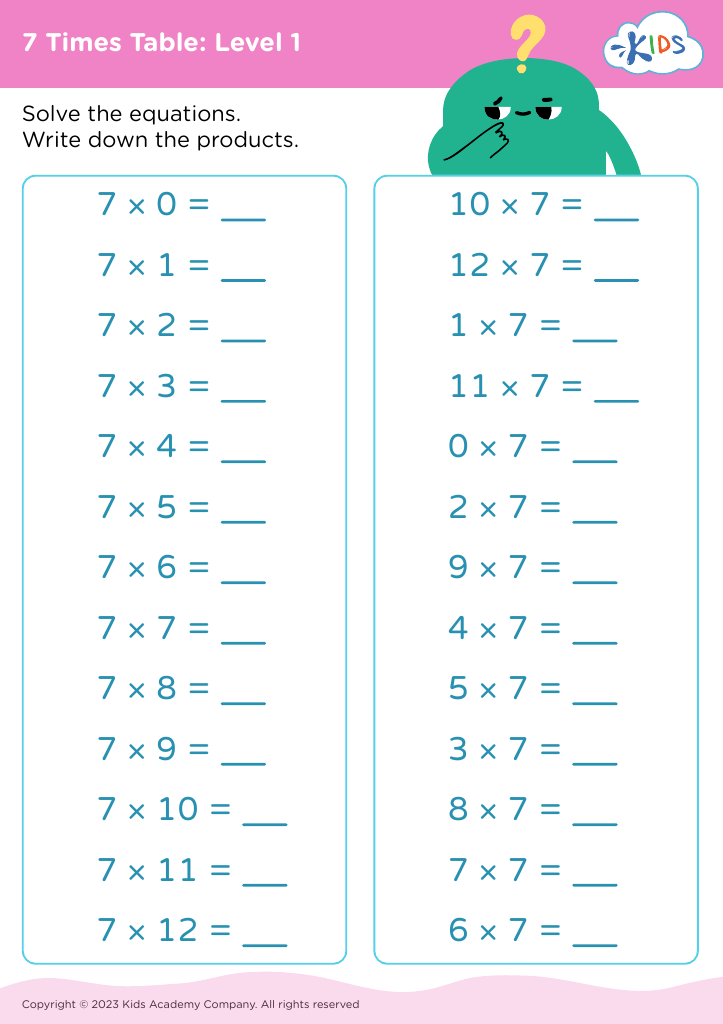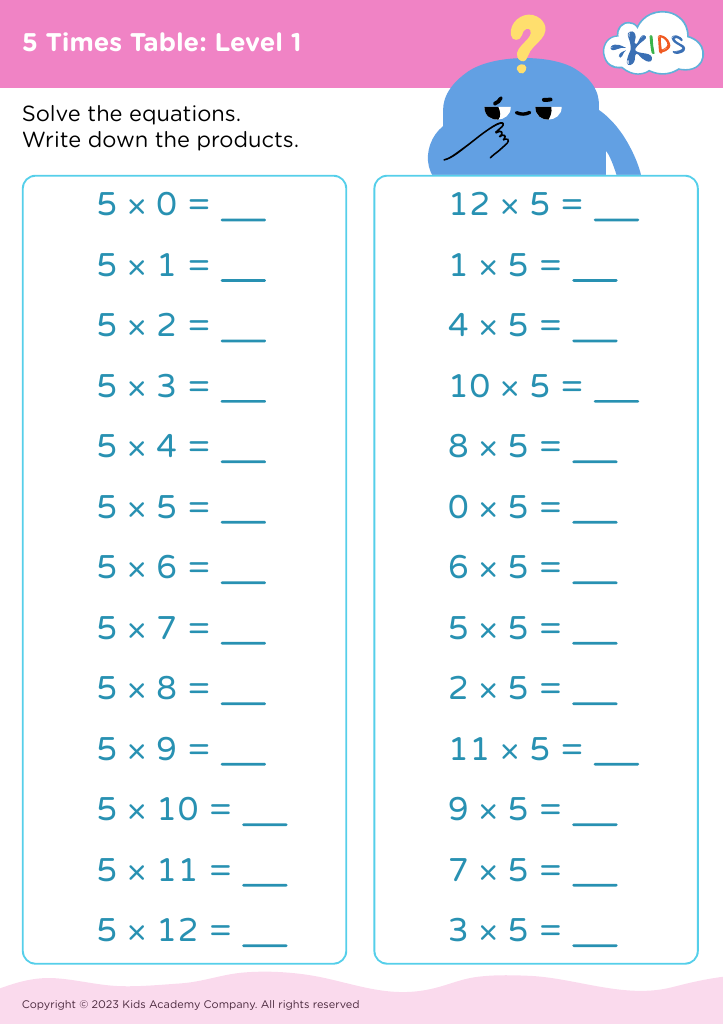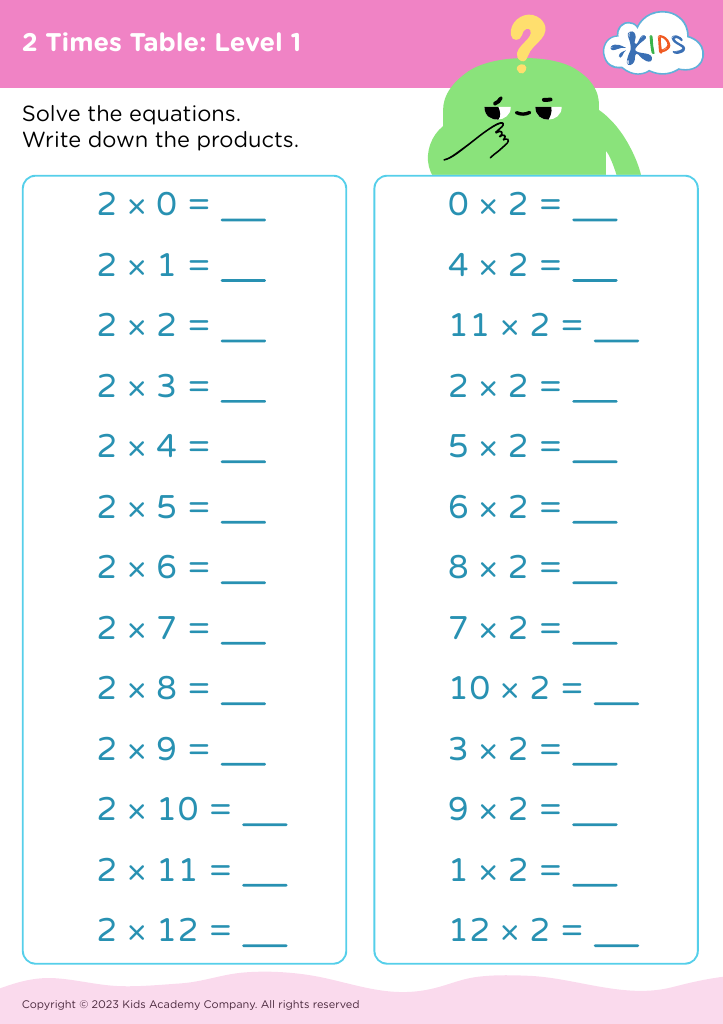Understanding times tables Easy Worksheets for 8-Year-Olds
3 filtered results
-
From - To
Explore our "Understanding Times Tables Easy Worksheets for 8-Year-Olds" designed to make learning multiplication fun and engaging! Our carefully crafted worksheets provide clear and simple explanations, helping children grasp the concept of times tables effectively. Each worksheet features colorful illustrations and interactive exercises to keep young learners motivated and focused. From basic facts to practical applications, these resources cater to different learning styles, ensuring comprehension at every step. Encourage your child’s mathematical confidence and proficiency with these user-friendly worksheets—perfect for at-home practice or classroom activities. Unlock your child's potential in multiplication today and watch them thrive!
Understanding times tables is crucial for 8-year-olds, as it lays the foundation for their future mathematical learning. Mastery of multiplication tables enhances a child's ability to tackle more complex math concepts, such as division, fractions, and decimals. When children have a solid grasp of multiplication, they can solve problems more quickly and with greater confidence, which fosters a positive attitude towards math.
Moreover, learning times tables enhances critical thinking and problem-solving skills. It enables students to recognize patterns within numbers, develop logical reasoning, and approach challenges systematically. This foundational skill also improves overall academic performance, as math concepts are interconnected across subjects, including science and even economics.
For parents and teachers, being actively involved in helping children understand times tables illustrates the importance of foundational skills in learning. Engaging children through fun and interactive methods, like games or songs, can make the learning process enjoyable and effective. Additionally, monitoring progress in multiplication fosters communication between parents and educators, ensuring that any difficulties can be addressed early on. Ultimately, a strong command of times tables empowers children, builds their academic confidence, and prepares them for future success in a increasingly math-driven world.







.jpg)


.jpg)









